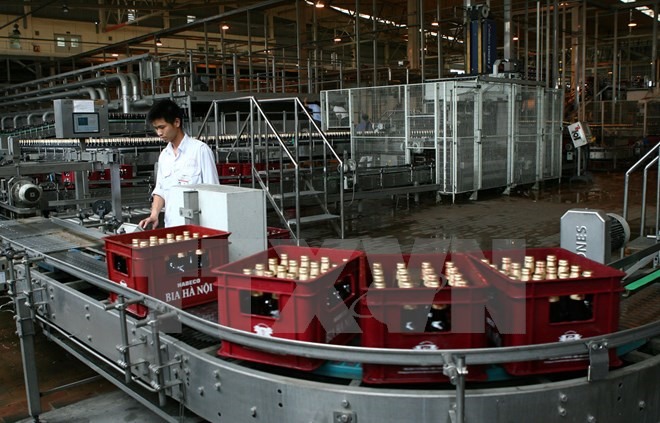Transparency is critical to enhance the efficiency of State-owned enterprises (SOEs) as Viet Nam enters a new phase of equitisation which will focus on quality rather than quantity.

Transparency is critical to enhance the efficiency of State-owned enterprises (SOEs) as Viet Nam enters a new phase of equitisation which will focus on quality rather than quantity.
This was the highlight of an online forum held by the Government’s e-portal on Tuesday ahead of the meeting of the Prime Minister with SOEs to be held at the end of this month.
Dang Quyet Tien, Director of the Ministry of Finance’s Corporate Finance Department, said that many SOEs have still failed to improve governance and operation efficiency after being privatised.
An estimate by the Steering Committee for Enterprise Innovation and Development showed that 92 per cent of SOEs were equitised over the past two decades but only 10 per cent of the State capital was replaced by private capital.
Economic expert Luu Bich Ho said that transparency was a common problem for SOEs.
Ho said that transparency and good governance were critical for SOEs in the condition of rapid international integration and requirements for compliance with international rules.
“SOEs need to change their thinking and working styles to create healthy businesses for efficient and sustainable development.”
Phung Van Hung, permanent Member of the National Assembly’s Economic Committee, said that after equitisation, many enterprises did not want to list on stock exchanges and did not want to publicise their operation results.
Hung said that it was necessary to push for the listing of SOEs which had already been equitised.
Tien agreed, adding that when listed on stock exchanges, the supervision of investors would force SOEs to improve governance and transparency following market practice.
He pointed out that there were about 700 SOEs which had been equitised but not listed. Of them, nearly 200 were planning to list and 300 were transforming into public companies while the listings of the rest were stagnant.
Public disclosure of information on finance and operation of SOEs is a top priority, Tien said, adding that improved transparency would help enterprises to raise capital at lower costs that banking loans.
Tien said that foreign investors focused more on governance efficiency rather than assets such as land in making investment decisions.
With regard to 12 loss-making projects under the management of the Ministry of Industry and Trade, Tien said that only with transparent information, could solutions be found for these projects. “Even bankruptcy or dissolution could be considered options if their operation remained inefficient.”
According to Hung, Viet Nam was in a much more sophisticated equitisation period due to the large scale of enterprises together with complex problems related to land and debt settlement, for example. “This is requiring greater determination.”
Regarding the operation mechanism of State Capital Management Committee which would supervise VND5 quadrillion (US$222 billion) worth of State capital at 21 SOEs, Hung said that it was necessary to enhance accountability to ensure efficiency in management of State assets.
The roles of the committee must be made clear, he said. — VNS





